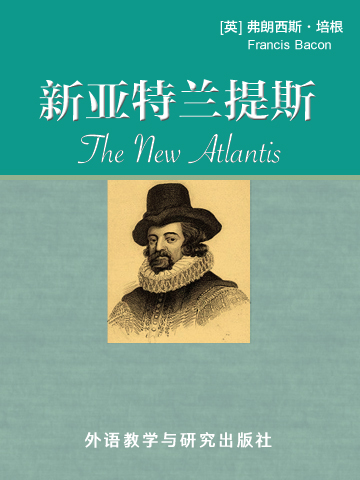主人公在航海途中遇到始于公元前300年的秘密岛国,这里各种先进技术和制度都源于一个古老的组织“所罗门学院”,让现代人亦叹为观止……
WE sailed from Peru, where we had continued by the space of one whole year, for China and Japan, by the South Sea, taking with us victuals for twelve months; and had good winds from the east, though soft and weak, for five months' space and more. But then the wind came about, and settled in the west for many days, so as we could make little or no way, and were sometimes in purpose to turn back. But then again there arose strong and great winds from the south, with a point east; which carried us up, for all that we could do, toward the north: by which time our victuals failed us, though we had made good spare of them. So that find- ing ourselves, in the midst of the greatest wilderness of waters in the world, without victual, we gave ourselves for lost men, and prepared for death. Yet we did lift up our hearts and voices to God above, who showeth His wonders in the deep; beseeching Him of His mercy that as in the beginning He dis- covered the face of the deep, and brought forth dry land, so He would now discover land to us, that we might not perish.
培根的最后一部著作,该书描写了太平洋的一个虚构的岛上的一个乌托邦国家。他的理想王国的繁荣和幸福取决于而且直接来自于集中精力所从事的科学研究。当然培根是在间接地告诉读者科研的明智应用可以使欧洲人民与他的神秘岛上的人民一样繁荣幸福。
Bacon's account of an ideal state reveals both practical methods and unique fantasy; a utopia, described with philosophical and rosicrucian undertones. An excellent story of a sailor/explorer that accidently finds Atlantis. Even though considered incomplete by some, this book has proven to be one of Francis Bacon's best works.
- THE NEW ATLANTIS
- 书评 写书评
- 笔记
-
书评加载中...













 京公网安备 11010802032529号
京公网安备 11010802032529号
笔记加载中...